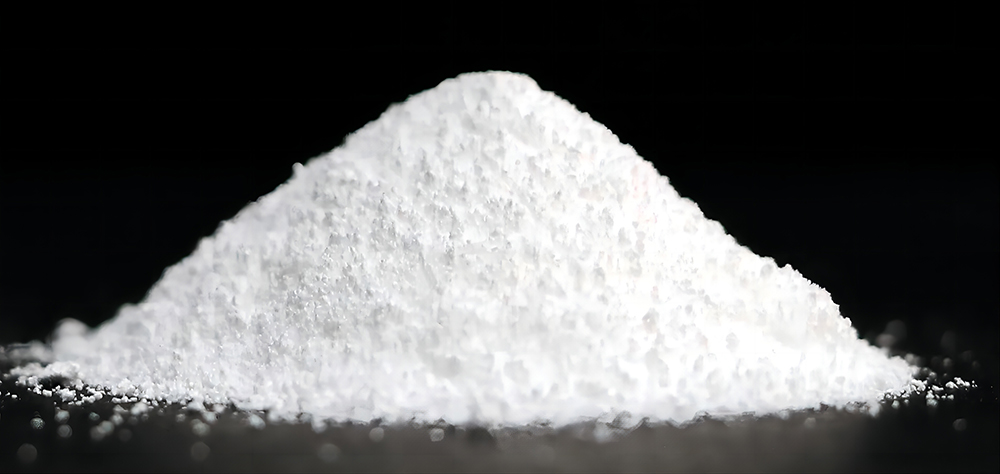Blog
Sodium Carbonate Chemical Formula Explained: Uses and Safety
Sodium carbonate chemical formula, Na2CO3, is a vital compound with numerous applications across various industries. This inorganic salt, commonly known as soda ash or soda crystals, plays a significant role in manufacturing glass, detergents, and other essential products. Understanding the sodium carbonate chemical formula and its properties is crucial for anyone involved in chemistry, manufacturing, or environmental sciences.
What is Sodium Carbonate?
Sodium carbonate, with the chemical formula Na2CO3, is a white, odorless powder that is highly soluble in water. Sodium ions (Na⁺) and carbonate ions (CO₃²⁻) combine to form this compound. You can find sodium carbonate naturally in mineral deposits, or manufacturers can produce it synthetically through various chemical processes. It has a range of applications, making it an essential chemical in modern industry.

The Chemical Structure of Sodium Carbonate
The sodium carbonate chemical formula indicates the presence of two sodium (Na) atoms, one carbon (C) atom, and three oxygen (O) atoms. This composition gives sodium carbonate its unique properties. The chemical structure is as follows:
- Sodium (Na): A vital element that contributes to the compound’s alkalinity.
- Carbon (C): Central to the structure, forming part of the carbonate ion.
- Oxygen (O): Three oxygen atoms are bonded to the carbon atom, creating the carbonate ion (CO₃²⁻).
Understanding the sodium carbonate chemical formula is essential for studying its reactivity and applications in various fields.
Common Uses of Sodium Carbonate
1. Glass Manufacturing
One of the primary applications of sodium carbonate is in glass manufacturing. The sodium carbonate chemical formula indicates its role as a flux, reducing the melting point of silica (SiO₂) and allowing it to melt more easily. This property is crucial for producing different types of glass, including container glass, flat glass, and specialty glass.
2. Detergents and Soaps
Sodium carbonate is widely used in the production of detergents and soaps. Its ability to soften water enhances the effectiveness of cleaning products. The sodium carbonate chemical formula demonstrates its alkaline nature, which helps break down grease and dirt, making it a key ingredient in household cleaning products.
3. pH Regulation
In various industries, sodium carbonate serves as a pH regulator. Its alkaline properties help maintain optimal pH levels in water treatment processes, swimming pools, and soil. The sodium carbonate chemical formula shows how it interacts with acids to neutralize and stabilize pH levels effectively.
4. Food Industry
Sodium carbonate also finds applications in the food industry, where it is used as a food additive and a leavening agent in baked goods. It helps regulate acidity and can improve the texture of certain products. Understanding the sodium chemical formula is essential for food scientists and manufacturers to ensure safety and compliance with regulations.
5. Chemical Production
Sodium carbonate is a vital raw material in the production of various chemicals, including sodium bicarbonate (baking soda) and sodium phosphates. These chemicals have numerous applications, from food processing to pharmaceuticals. The sodium chemical formula serves as a foundation for understanding these related compounds.
Safety and Handling of Sodium Carbonate
Health Hazards
While sodium carbonate is generally considered safe when handled correctly, it can cause irritation to the skin, eyes, and respiratory tract. It is essential to follow safety protocols when working with this chemical to prevent accidents. Always wear appropriate personal protective equipment (PPE), such as gloves and goggles, when handling sodium carbonate.
Environmental Impact
Sodium carbonate is biodegradable and has a relatively low environmental impact. However, improper disposal can lead to environmental issues, particularly in aquatic systems. It’s crucial to follow local regulations regarding the disposal of sodium carbonate and related waste products.
Conclusion
In conclusion, the sodium chemical formula, Na2CO3, represents a versatile compound with significant importance in various industries. From glass manufacturing to food production, sodium carbonate plays a crucial role in many processes. Understanding its chemical structure and properties is essential for professionals and students alike.
